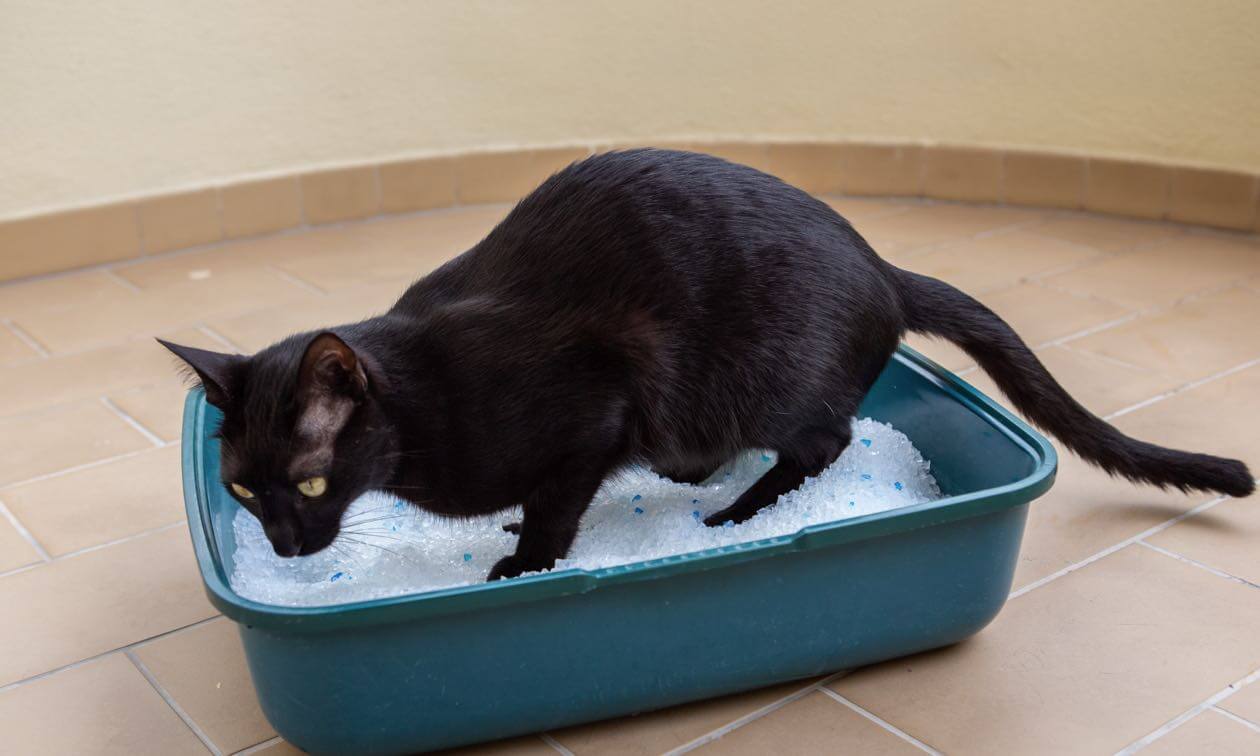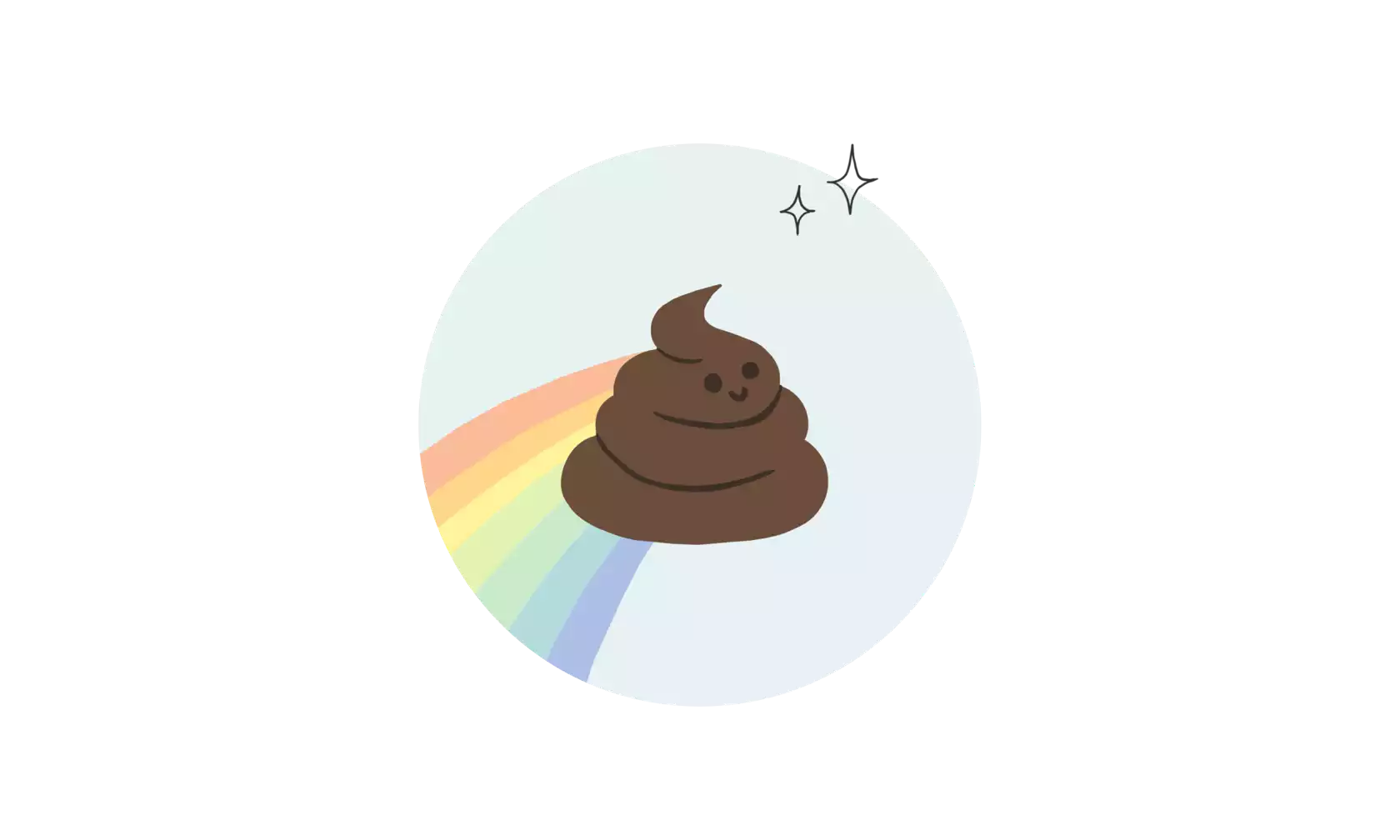While cleaning your cat’s litter box may not be on your list of fun things to do, it does provide valuable health information about your cat. Knowing your cat’s normal litter box habits can help you detect medical problems in the early stages. Changes in the appearance of waste and the amount or frequency of visits to the litter box can only be determined with regular monitoring. Some mild changes can be normal. But how do you know when your cat’s poop is no longer “normal” and intervention is needed?
What is Diarrhea?
When stool is softer, looser, or more watery than usual, with an increase in frequency and amount, it’s referred to as diarrhea. It occurs when fecal matter moves faster than normal through the intestines and there is a decrease in water, nutrient, and electrolyte absorption by the intestines. Diarrhea, itself, is not a disease. It can be a clinical sign of many different diseases or brought on by bacterial infections, stress, medications, or a long list of other triggers. Kittens can get diarrhea as well, for reasons such as parasites, infection or other factors. It can be the only symptom present or one of several symptoms caused by a more generalized disease or issue. The common denominator is that some degree of inflammation is created in one or more places along the gastrointestinal tract.
How Do I Know My Cat Has Diarrhea?
You may not initially notice your cat has diarrhea if it’s mild and they are still using the litter box and burying it well, or they are eliminating outdoors.
There are subtle and not so subtle signs you can look for:
- Pooping more frequently than normal
- Fur around their backend is stained or has poop on it
- Having accidents in the house
- Poop is unformed to liquid
- Poop may contain blood or mucus
- Many times it may seem your cat is constipated, but they can strain to poop with diarrhea as well.
- Poop may smell much worse than usual
- Loss of appetite
- Weak and lethargic
- Nausea or vomiting
Generally, most cases will resolve in a few hours or days without intervention. However, if your cat has diarrhea or exhibits other symptoms or changes in behavior, you should seek veterinary care immediately.
Causes of Diarrhea in Cats
There are many causes of diarrhea in cats, ranging from mild to serious. They all produce some degree of inflammation in the GI tract which causes loose, watery stool. These are some of the more common triggers:
- Changes in diet
- Intestinal parasites such as coccidia, giardia, and intestinal worms
- Stress
- Food intolerances or allergies to a particular dietary ingredient
- Inflammatory bowel disease
- Medications such as antibiotics
- Toxins from chemicals or plants
- Bacterial infections
- Intestinal bacterial overgrowth
- Pancreatitis
- Liver disease
- Cancer
Veterinary Treatment for Cats with Diarrhea
When a cat appears otherwise healthy, a non-specific approach is taken before advanced and in-depth testing is done. This generally includes a very short period of withholding food or just feeding frequent small meals of a bland and highly digestible diet. Since cats can become dehydrated from diarrhea, water is never withheld. In some cases, subcutaneous or intravenous fluids may be administered. Other additions to this treatment regimen may include antidiarrheal medications, dewormers, prebiotics, and probiotics. Adding fiber to your cat’s diet may also be recommended.
If your cat doesn’t respond to conservative treatment or your veterinarian thinks there may be underlying issues, they will likely perform an in-depth workup to determine the cause of diarrhea so they can adjust treatment as necessary and tackle the root of the problem. Depending on the severity and duration of your cat’s diarrhea, and their response to initial treatment, testing may include bloodwork, x-rays, fecal testing for parasites and other abnormalities, diet trials, abdominal ultrasound, intestinal scoping, or intestinal biopsies.
For more complicated cases of diarrhea, or those with underlying issues that require ongoing treatment, your cat may need to receive medications regularly for life. Often in these cases, routine monitoring is critical for medication adjustments to keep your cat feeling their best.
Sadly, diarrhea happens. But with the right treatment protocol from your veterinarian, your cat can return to their happy, healthy, and playful self.
ZPC-01784R2



